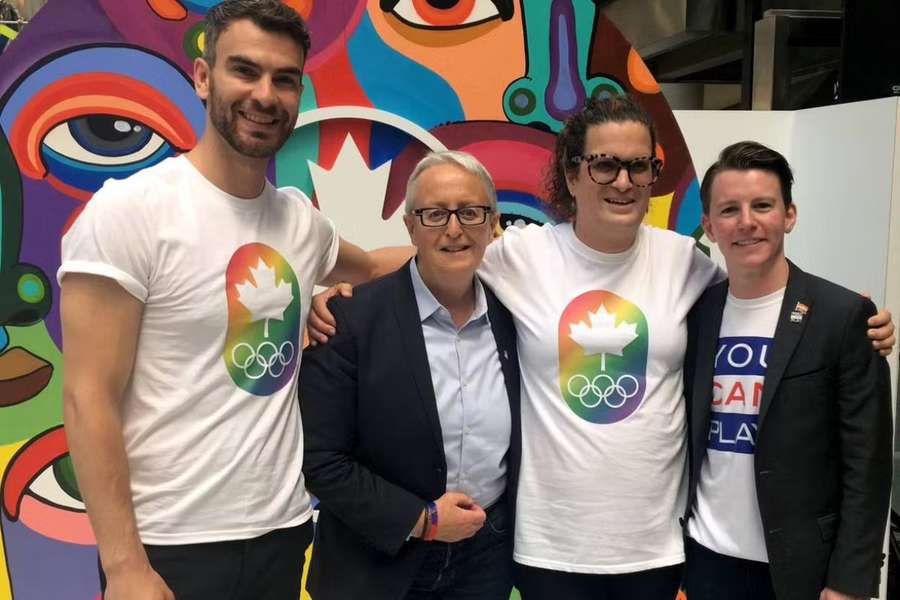Transgender athletes condemn ban on inclusion in female events

Worley sought to compete for Canada at the 2008 Beijing Olympics but because of health issues related to the IOC's gender verification process, she was physically unable to perform.
She has since become an educator on the topic of transgender athletes and safeguarding women in sports.
"What's happening is the most vulnerable are being excluded from sport more for political reasons and not based on science and research," Worley told Reuters.
"This has effects not just at the international levels but consequently over communities across the globe including communities in the United States."
World Athletics president Sebastian Coe early on Thursday said that the decision to exclude transgender women who had gone through male puberty was based "on the overarching need to protect the female category."
The tighter measures around one of the most contentious and divisive issues in sport follow a similar move by World Aquatics in 2022.
But Worley said the notion that transgender women athletes are dominating women's sports was nonsense.
"I'm watching all the news groups put out images on Twitter with no images of transitioned athletes at the elite levels of the World Athletics because there aren't any," she said.
"So this is purely a political move by Seb Coe and World Athletics to deal with the right-wing issues, political relationships and obviously potential sponsors that are funding World Athletics today."
'Forces of hate'
Ricki Coughlan, one of Australia's first transgender athletes in professional running, said WA's ruling would embolden the "forces of hate" against transgender people.
"There's no nice way of putting this," she told Reuters.
"The forces of hate that are out there that don't want transgender people to exist in our society, will take this as a win and will then say 'okay, let's move onto the next thing'."
WA also tightened eligibility requirements for athletes with Differences in Sex Development in women's events, halving the upper threshold of testosterone levels.
DSD athletes have male testes but do not produce enough of the hormone Dihydrotestosterone (DHT) that is necessary for the formation of male external genitalia.
"For women with intersex traits, they will continue to be subjected to horrific sex testing practices and medically unnecessary surgery, gender-based violence and discrimination," Hudson Taylor, founder and executive director of Athlete Ally, said in a statement.
Athlete Ally advocates for the inclusion of lesbian, gay, bisexual, transgender and intersex (LGBTI) people in sport.
Australia's national athletics federation said it would abide by the WA decision, but retain its own guidelines for including transgender athletes in community-level sport.
New Zealand's federation said the subject of transgender athletes was "a very sensitive topic" and it needed time to digest and understand the new rules.
'Big step for fairness'
A number of elite women in track and field welcomed the WA decision, including British runner and Olympian Emily Diamond who tweeted "thank you for following the science".
"A big step for fairness and protecting the female category hopefully this will be the rule across all levels now, not just elite ranking events," wrote Diamond, who won a 400 metres relay bronze at the 2016 Rio Olympics.
Olympian and marathon runner Mara Yamauchi tweeted: "Good news! Odd to celebrate something which is common sense."
Save Women's Sport Australasia, a group campaigning against transgender athletes in female sport, applauded the decision.
"Well, it's not a ban, it just actually moves to protect the female category to female competitors and it was an excellent decision," spokeswoman Ro Edge told Reuters.
"So it's really reassuring to hear president Seb Coe come out and say they've got to maintain fairness of female participation above all other considerations."

